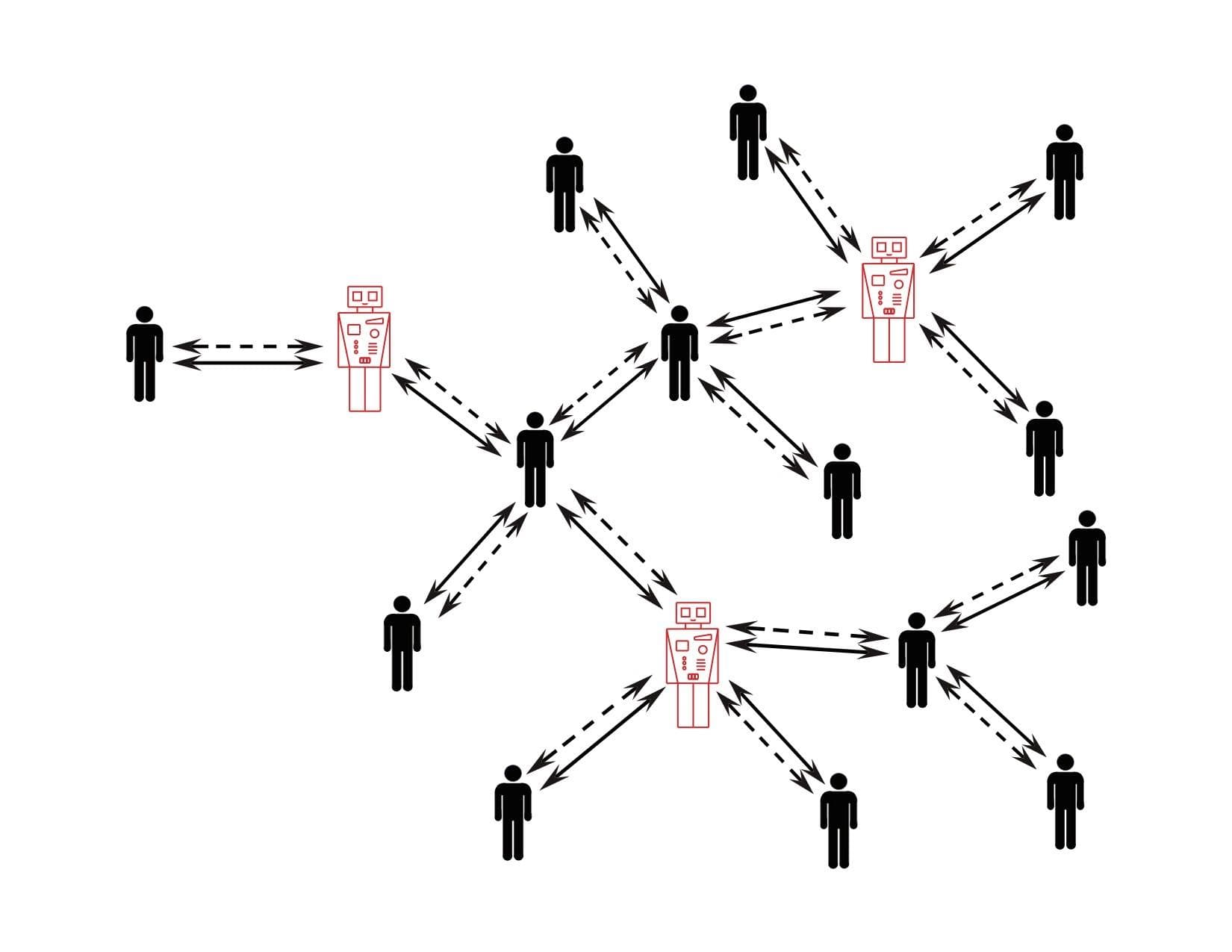Using Bots to Enhance Human Cooperation
How can online bots, endowed with particular kinds of AI, enhance human cooperation? By rewiring social connections using autonomous agents, we can make groups of people more effective at cooperation and better able to solve diverse collective actions problems.
Bots and AI entities (like Alexa or Siri) play an ever-increasing role in our everyday existence. Adding AI to our human social systems (to form what we call “hybrid systems” of humans and machines) may affect our ability to live and work together, for better or worse.
We have been exploring how AI may enhance our abilities to work together, showing how simple autonomous agents, when added into social groups, could make it easier for the groups of people to coordinate their actions. This “dumb AI” inserted into human social networks made outcomes better for the people involved, by helping the (much smarter) humans to help themselves. (See our 2017 Nature article.) We have used our breadboardsoftware platform to conduct experiments with over 30,000 people so far.
In new work, we are developing a new kind of “social assistant” that can be mixed into human groups, brokering social introductions in a way that rewires the network and that enhances the ability of groups of people to cooperate with one another. This technology can help with a broad and diverse set of problems, ranging from decreasing hatred and reducing political polarization online; connecting isolated, lonely elderly people; and equipping populations to work together to combat collective problems like climate change. We need support to conduct these fundamental experiments.
